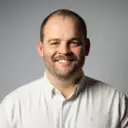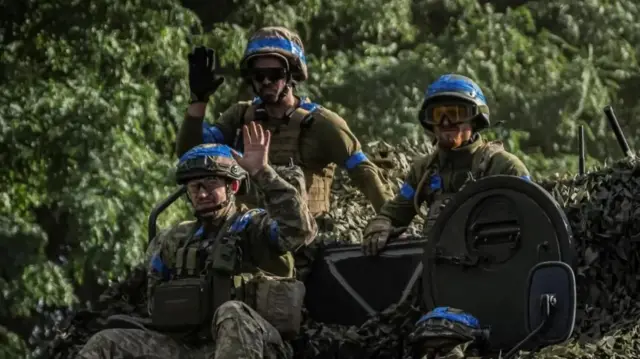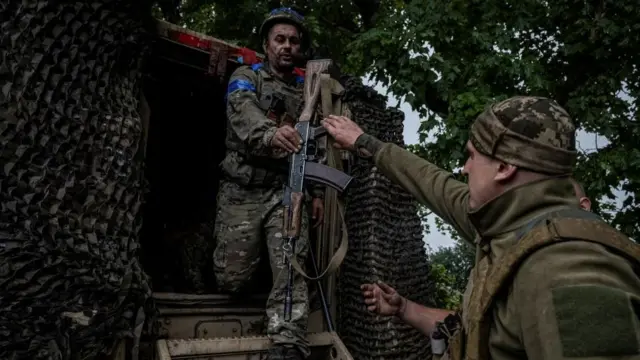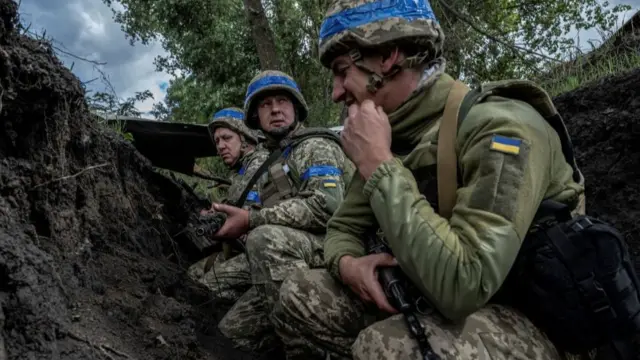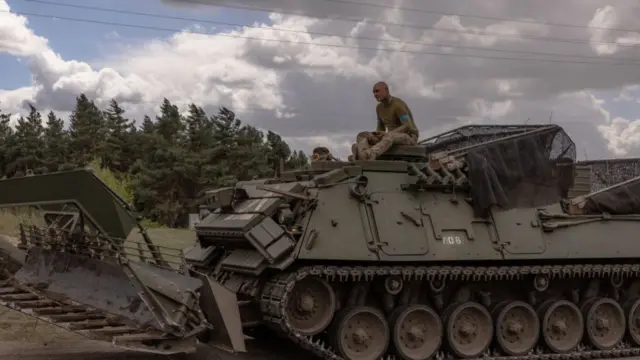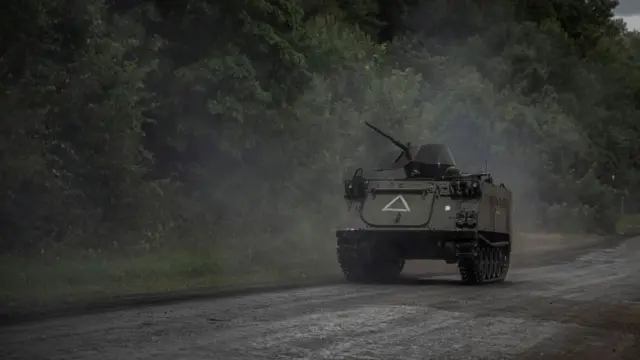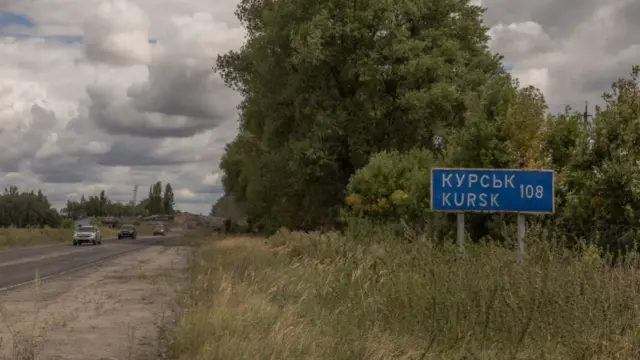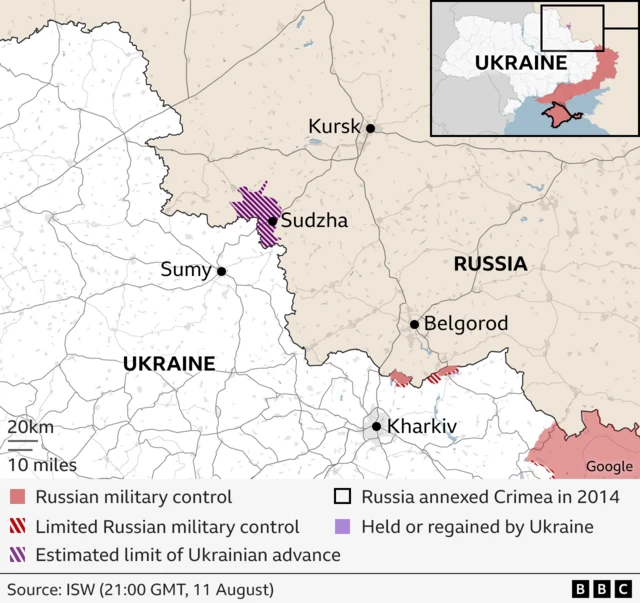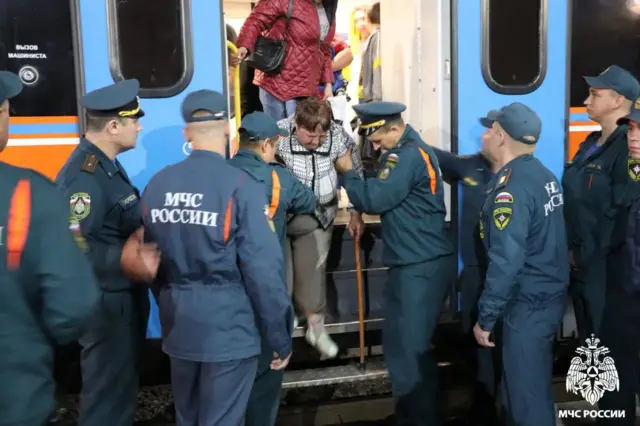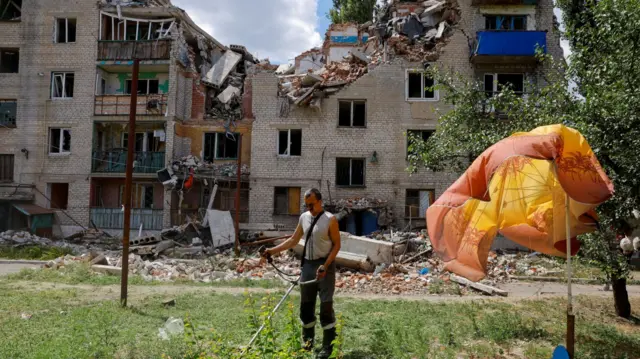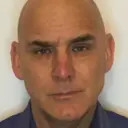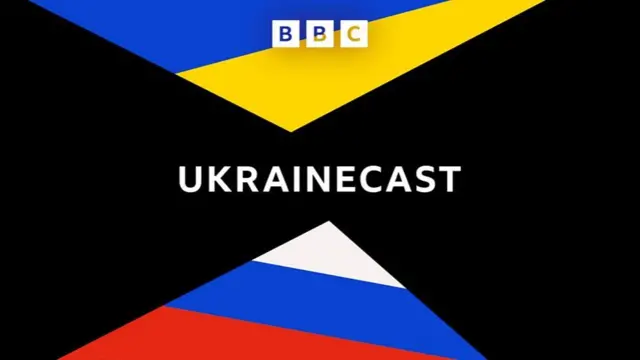Six things to know from todaypublished at 18:29 BST 13 August 2024
Over the last few hours, we've been bringing you updates as Ukraine continues its incursion in Russia's Kursk region. Here's a look at some of the main developments from today:
- Ukraine now controls 74 settlements in Kursk, the country's president, Volodymyr Zelensky, said, having launched its incursion there last week. The region's governor said on Monday that Ukraine controls 28
- Ukraine's foreign ministry says it is not interested in "taking territory" in the region, but will continue its offensive until Russia agrees to "a just peace"
- In a briefing earlier, the US state department said it was not involved in any preparations for Ukraine's incursion
- Kyiv's chief of staff said movement has been restricted for Ukrainian civilians within a 20km (12 mile) zone bordering Russia
- Ukraine's top commander has said Kyiv's forces control 1,000 sq km of Russian territory, but the US-based Institute for the Study of War think tank did not believe all the area was under Ukrainian control
- About 200 people who left Kursk arrived in Moscow today, Russia's emergency ministry said. Yesterday, officials said at least 121,000 people had fled the region, with a further 59,000 told to leave
We'll be pausing our coverage shortly, but you can read more about today's developments here.
